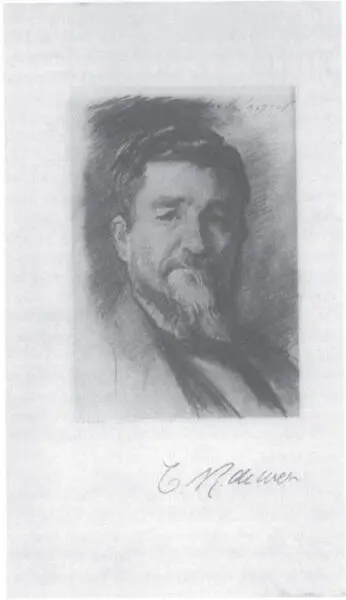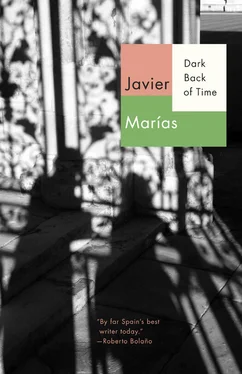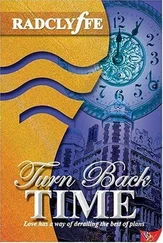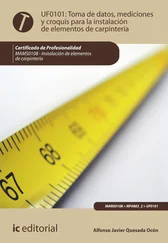
Conan Doyle also speaks of all those battles or skirmishes in one of his “serious” books which he so stupidly preferred to the ones about Sherlock Holmes: The Great Boer War (1900), partially based on his own experience during his five months as a volunteer field doctor (at first he wanted to enlist, but all the corps told him he was too old for military service; he hadn’t yet turned forty-one), though neither as serious nor as long as the book in six volumes he later wrote, under the title The British Campaign in France and Flanders , about the First World War of Stephen Graham, the orderly, and Wilfrid Ewart, his captain. In The Great Boer War , Conan Doyle makes only one reference to Major Ewart, who as at Khartoum, accompanied Lord Kitchener, but devotes numerous pages to the stratagems and feats of the two De Wets, for there was a second general of the same name, though of lesser rank, Christiaan’s brother Piet de Wet; and a bullet did find its billet in another person of that name, for this De Wet’s son, Johannes de Wet, fell at one of those sonorous sites and did not rise again, and a son of the Vechtgeneraal, Jacopus de Wet, was taken prisoner. Conan Doyle, by the way, returned to the subject again in 1902, with his shortest book, The War in South Africa: Its Cause and Conduct , to refute the many lies about the British troops’ supposed brutality that were being published everywhere, particularly in England itself. That didn’t keep him from admiring the strategically astute and audacious tactics of the great De Wet; according to Conan Doyle’s memoirs, the worst reproach that could be levelled at him from the perspective of military ethics—“one of his least sporting actions, or the only one,” he wrote — was his incineration of the sacks of mail on a British mail train he attacked and looted at Roodewal Station, which darkened the air with thousands of floating cinders. None too grave an iniquity, really, for a guerrilla leader, who, in addition, was immortalized by the creator of Holmes in a brief description at the beginning of Chapter XXVII of The Great Boer War:
“Christian de Wet, the elder of two brothers of that name, was at this time in the prime of life, a little over forty years of age. He was a burly middle-sized bearded man, poorly educated but endowed with much energy and common sense. His military experience dated back to Majuba Hill and he had a large share of that curious race hatred which is intelligible in the case of the Transvaal, but inexplicable in a Freestater who has received no injury from the British Empire.” And then comes the most arresting detail: “Some weakness of his sight compels the use of tinted spectacles, and he had now turned these, with a pair of particularly observant eyes behind them, upon the scattered British forces and the long exposed line of railway.” And a little further along he insists on this detail, which it’s impossible not to associate with the eyepatch or smoked glass monocle worn by his mercenary descendant who was most assuredly deceptive but perhaps not so fraudulent as all that, “The tinted spectacles” he says “were turned first upon the isolated town of Lindley.”
Ewart’s sightless eye was undoubtedly hereditary and perhaps De Wet’s was, as well, despite his fascinating and fantastical stories, as Anthony Edkins described them, so both were one-eyed soldiers — Ewart in the trenches and the De Wet in the air — very ill-equipped to keep death from passing through space with its single eye and time with its rusting lances. My father hasn’t seen through one of his eyes for years now, either; when he’s not wearing his glasses his eyes look even bluer, which is why my mother would say, whenever he took them off, “You’ve put on your German face.” But he doesn’t wear any sort of patch or monocle, nor has he ever in his life worn dark or tinted or smoked glasses, though I do from time to time. My eyesight, too, has a certain weakness (which is of no importance to me because I may not have it any more these days), though in the past it was a slow but certain cause of ultimate pain and blindness, and perhaps death, too, I don’t know. To mention only men of letters, a weakness of the eyes embittered James Joyce’s existence; operated on eleven times with hardly any improvement, he appears in many of his photographs with a bulky black patch over his left eye, though there are those who say he wore it less out of necessity than out of affectation, to make himself more original. I know what it is to have one eye covered: as a child of eight or nine I had to wear a patch over my left eye for several months when the right one was diagnosed as “lazy,” thus forcing it to work and strive to make up for lost ground, while my better eye, which tended to take the whole task of looking and seeing upon itself, was covered up. I remember detesting that piece of gauze or bandage or patch over my good eye, and I think I cheated and took the dressing off during recesses at school and then stuck it back on carelessly; fortunately the torture didn’t last long but perhaps it’s because of that long-ago impatient disobedience that today my bad eye continues to be lazy, I think, or in any case, less active and perspicacious than the other one, whose superiority I always attributed to the fact of its being on the left, just as my left hand was stronger and more skillful than the right one, I found nothing strange in observing this ascendancy throughout the body. I was lucky that no attempt was ever made to correct my lefthandedness during a period when it was almost mandatory to do so, I wouldn’t have been able to stand having my left arm tied in a sling, and to have felt one-armed and one-eyed: the school I went to, the Estudio, was liberal and secular and clandestinely co-educational, a disguised appendix or remainder of the Institución Libre de Enseñanza from the time of the Republic, before the wind swept away the weeks; and my parents were also liberal and would have had their work cut out for them, since my unknown brother Julianin was also left-handed as is my brother Álvaro, three out of five. When I learned to write names, among them my own, I wrote the letters from right to left, as Arabs do, and though I read “XAVIER”—that was what they named me, Xavier with an X, and that’s how I wrote it as a child and how my mother always wrote it — what was really written or what everyone but me read was “REIVAX,” and when she, laughing, wouldn’t give me her approval, I didn’t understand why and protested, since it looked to me as though I had written all the letters in the right order, without leaving any out or making any mistake; I still read “XAVIER” where apparently, by other peoples’ standards, I had written “REIVAX,” and when my mother said I had at last written “XAVIER,” I read “REIVAX.”
I sometimes think that time must be different for someone who began writing and reading in reverse — a tendancy that naturally corrected itself — than it is for most people, who have never tried to go from back to front but have always progressed from front to back, never trying to begin at the end but only to adjust to it, to the expectation and fear of it and to its arrival; and I sometimes think that might be why I often move through what I’ve called in several books “the other side of time, its dark back,” taking the mysterious expression from Shakespeare to give a name to the kind of time that has not existed, the time that awaits us and also the time that does not await us and therefore does not happen, or happens only in a sphere that isn’t precisely temporal, a sphere in which writing, or perhaps only fiction, may — who knows — be found. That might be why I often see the past as future — I see it when it was only that: future — and the future as past, what must come as if it had already arrived and happened and, what’s more, as if it no longer had much importance since even its vanishing or oblivion has already begun, so far gone, so lost is everything, with time. Or perhaps only what has occurred and can be told is lost and gone, or so it may appear, and therefore it is the only ambiguous thing or the only thing that permits of ambiguity, as Don Juan Benet wrote thirty years ago. And he also made another enigmatic statement at that time which I hadn’t read until thirty months ago in the old article that contains it, and about which I can no longer ask him anything: “… it seems to me that time is the only dimension in which the living and the dead can speak to each other and communicate, the only one they have in common,” that’s what he said. I don’t understand it, I don’t understand it at all, but I know he did not write gratuitously, though like all good writers he did sometimes write arbitrarily. I don’t understand it unless I think instead of that other side, that dark back through which the fickle and unpredictable voice we all know nevertheless passes, the voice of time when it has not yet gone by or been lost and perhaps for that reason is not even time, the voice that is permanently in our ears and that is always fictitious, I believe, as perhaps is and has been and will be until its end the voice that is speaking here.
Читать дальше













